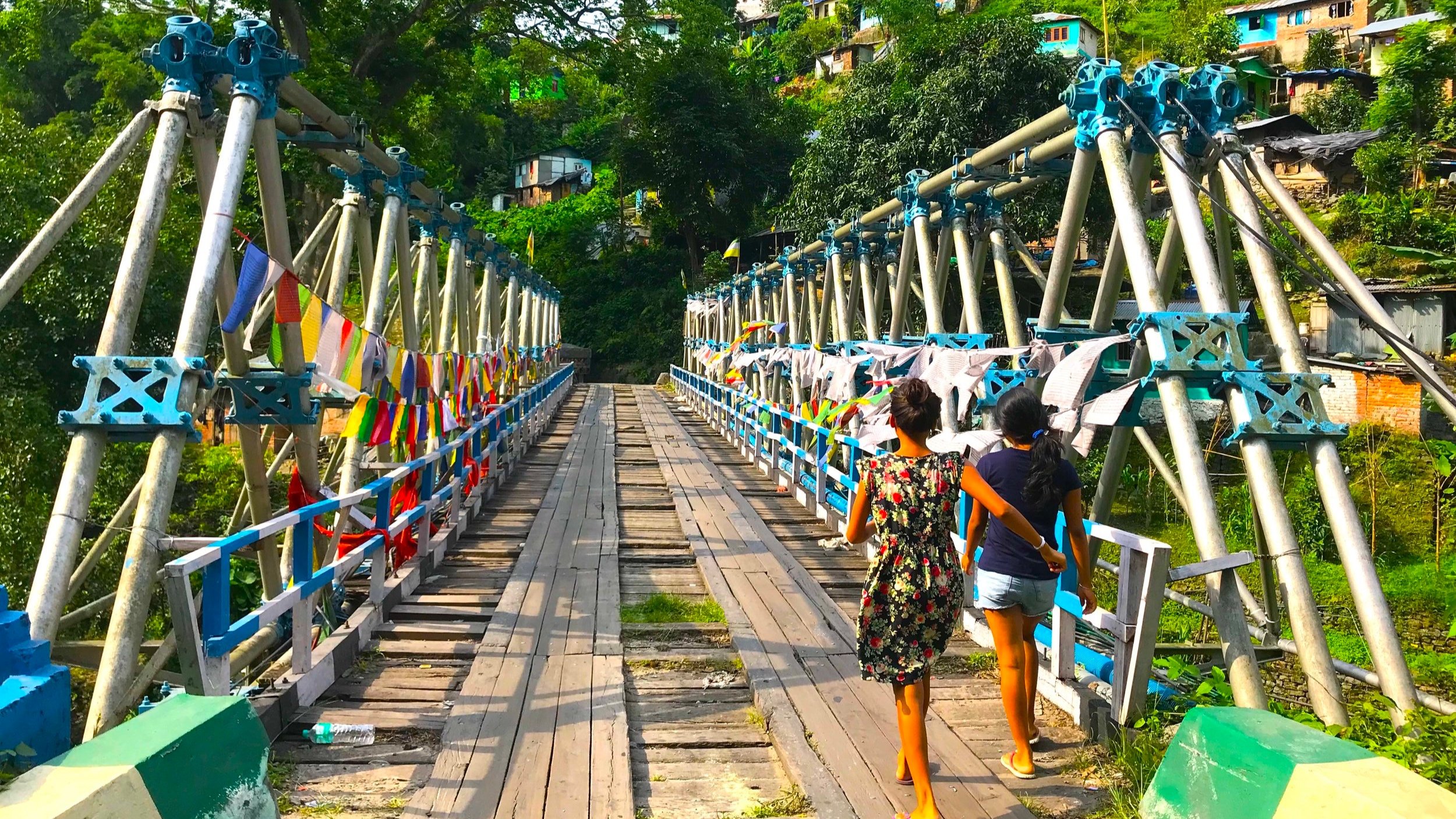Can Sovereign Wealth Funds avert financial and ecological debts to be passed on to our children and grandchildren?
There is a strong intergenerational argument for the establishment of Sovereign Wealth Funds Photo©MayEast
As newly elected President Luiz Inácio “Lula” da Silva prepares to take office with a national and global mandate to revert Brazil’s environmental legislation, policies and practices towards life-enhancing patterns, a forum of six Brazilian governmental agencies recently met to share their experiences on the creation of intergenerational sovereign wealth funds.
Sovereign Wealth Funds (SWF) are financial instruments adopted by resource-rich municipal and state governments benefiting from oil or mining royalties. Acknowledging the fact that one day, the wells and mines will be completely exhausted, SWFs ensure that these resources continue to benefit the communities even after exploration activities are over.
There is a strong intergenerational argument for establishing a SWF: an ethical-stewarded sovereign wealth fund enables future generations to share in the economic prosperity that exploiting natural resources creates when the resources run out.
Most of the time Sovereign Wealth Funds serve three different purposes:
· As a savings reserve for future generations
· To finance the social and economic development of the country
· It also guarantees the government’s ability to finance itself in times of economic crisis
The Quest for Genuine Wealth
Former Senator Bobby Kennedy once said that GDP ‘measures everything except what makes life worthwhile’. Gross Domestic Product – the main economic indicator of national prosperity for for almost a century – has been considered the best way to measure wealth of a country or a city. In fact, it measures the speed through which we extract natural resources, produce, consume and discard them in a linear way. The model assumes that there are unlimited resources as ‘inputs’ in the economy and an unlimited ‘sink’ for receiving outputs in the form of waste.
Increasingly, governments are moving away from traditional methods of measuring growth and development through GDP, shifting their perspective from quantitative to qualitative growth and adopting measures of well-being, happiness and the integration of local economies to the ecological processes that sustain life.
With its Ministry of Happiness orchestrating the welfare of all, Bhutan is among the 10 happiest nations in the world, with very low levels of violence, no beggars and zero hunger. Meanwhile, New Zealand has a ‘Wellbeing Budget’ that prioritizes spending to raise the happiness levels of its people and in 2016, the UAE launched the National Programme for Happiness and Wellbeing, with the aim of placing the UAE among the five happiest countries in the world, promoting wellbeing as a lifestyle in the communities and developing benchmarks to measure happiness.
Yonder sky that has wept tears of compassion upon my people for centuries untold. And though it changeless and eternal to us, it may change. Today is fair. Tomorrow it may be overcast with clouds.
Chief Seattle, 1854
I argue that the establishment of sovereign funds needs to be accompanied with an expanded time horizons perspective that takes into consideration the first peoples, guardians of the memory of the territories as well as those who are still to be born. Both generations held in a worldview that goes beyond the ‘fetichism of development’, that promotes a perspective of genuine wealth (not only monetary) taking inconsideration the complex web of bio-cultural-spatial patterns of today and tomorrow.
The world’s largest SWF as of June 2022 was Norges Bank Investment Management with assets around 1.36 trillion U.S. dollars.
The fund known as Norway’s oil fund was established in 1969 after Norway’s discovery of oil in the North Sea.
What are the largest Sovereign Funds in the world?
Norway Government Pension Fund Global – Norway
China Investment Corporation – China
Kuwait Investment Authority – Kuwait
Abu Dhabi Investment Authority – Abu Dhabi
Hong Kong Monetary Authority Investment Portfolio – Hong Kong
GIC Private Limited – Singapure
Public Investment Fund – Saudi Arabia
Investment Corporation of Dubai – Dubai
In addition, one of the oldest is the Alaska Permanent Fund.
The Santiago Principles signed in Chile, as a framework of Generally Accepted Principles and Practices addressing transparency, independence and adequate governance of SWFs. Photo©MayEast
Santiago Principles
In 2016, 30 funds collectively representing 80% of assets managed by sovereign wealth funds globally, developed and formally signed the Santiago Principles. They are a consequence of investor and regulator concerns with establishing management principles that address transparency, independence and adequate governance in the sector.
The principles are maintained and promoted by the International Forum of Sovereign Wealth Funds (IFSWF), whose members must have or aspired to implement them.
The Santiago Principles state that Sovereign Wealth Funds must possess:
A sound legal framework
A well-defined mission
Domestic activities coordinated with fiscal and monetary authorities
Clearly defined rules for drawdowns
Transparency to the owner
Clear division of roles
Governing bodies appointed in a predetermined manner
Governing bodies that act in the best interest of the SWF
Independence
Formal definition of accountability
Annual reporting
Independent auditors
Ethics and professionalism
Rules-based outsourcing
Ability to abide by rules of foreign countries
Operational independence from the owner
Public transparency
Clear investment policies
Commercial orientation
Restrictions against using privileged information
Shareholder rights policies
Effective risk management
Proper reporting of performance
And regular reviews to ensure its compliance with the foregoing Santiago Principles
Norway, setting the record right
Norway’s Government Pension Fund Global, also known as the oil fund, is often cited as an exemplary Sovereign Wealth Fund. Since 1970, it has grown into one of the biggest single stores of wealth in the world, and the largest sovereign wealth fund controlled by a country on behalf of its citizens.
In 2017, its value surpassed $1tn (£730bn) for the first time. At that point, the Economist magazine calculated that the citizens of Norway owned more than 1% of all the world’s shares. Despite its roots in oil wealth, the fund has shifted the focus of its investments in recent years, including a 2019 pledge to divest its ownership of oil and gas producers’ shares.
The fund is pushing the thousands of companies in its portfolio to reach net-zero emissions by 2050 at the latest, joining many global investors in setting such goals to prevent the financial risks from a ‘delayed transition’ to a low carbon world.
Pia Rudolfsson Goyer in a North-South exchange to introduce the ethical obligations of the Norway oil fund and its checks and balances-system. Photo©PiaGoyer
Recently Dr Pia Rudolfsson Goyer, who has worked for 12 years at the secretariat of the Council on Ethics of the Government Pension Fund Global, held a seminar to transfer Norway’s knowledge to the officials of Conceição do Mato Dentro, establishing the first Brazilian fund from mining royalties. She presented the ethical guidelines informing the Government Pension Fund Global, the architecture of the Council of Ethics and its comprehensive checks and balances-system.
The Launch of the Forum of Brazilian Sovereign Wealth Funds
There are countless examples in Brazil and in the world beyond, of cities and regions that have failed to convert revenue from mining or oil extraction into a sustainable base for social equality and economic diversification, which could endure after wealth from resource extraction dried up.
In a recent seminar in Rio de Janeiro, subnational leaders from Niterói and Maricá in Rio de Janeiro state, Ilhabela in São Paulo state, Conceição do Mato Dentro and Congonhas in Minas Gerais, and the state of Espírito Santo signed a declaration of principles (inspired by the Santiago Principles) and established the Forum of Brazilian Sovereign Wealth Funds. Over the past five years, they have been sharing experience in transforming royalty funds into a permanent foundation to sustain transformative social programmes and facilitate intergenerational savings. With the launch of this forum, they are joining forces.
By establishing Sovereign Wealth Funds by subnational entities in Brazil we may be building up vital savings for future generations.
Conclusion
Just as we are living ecologically beyond our means, we have created a financial system that perfectly mirrors and reinforces our ecological dysfunction of ‘buy now pay later’. Debt is usually taken on with the understanding that a person pays it off during their lifetime. However, those of us alive in the present, are signing an unspoken contract with our descendants without their consent, that entails our debts – both financial and ecological – will be passed on to our children and grandchildren.
By establishing sovereign wealth funds, we may begin building the vital savings needed for future generations to weather the coming climate impacts and vulnerabilities. And, most of all, in changing the mindset from the fatally flawed understanding that nature is an unlimited stock of resources to be converted for human purposes, enshrined in the short-termism of the election cycle, there may cause for renewed hope.
I am currently part of a multi-disciplinary team contributing to the drafting, consolidation and establishment of a Sovereign Wealth Fund in a mining city in the estate of Minas Gerais, Brazil. Photo©CMD







